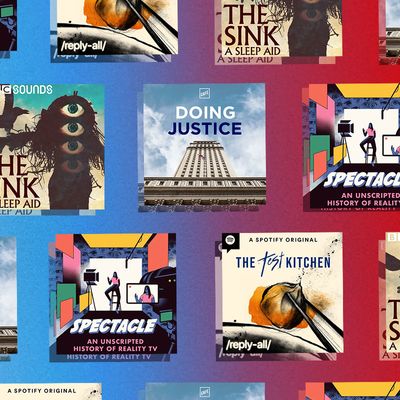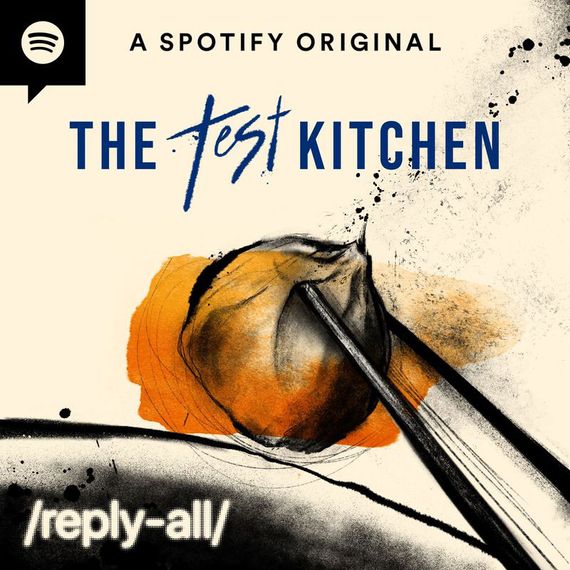
In this week’s issue: racial reckoning in the workplace, reality television, and creepy sleep aids.
Tell me what you’re listening to. Find me on Twitter or reach me over email: [email protected].
Reply All: The Test Kitchen
Apple Podcasts | Spotify | RSS Feed
Word that the Reply All team was working on a big, new, ambitious project had been floating around for a bit, and last week, we were finally introduced to the fruits of all that labor: a four-part series on the Bon Appétit implosion owing to scandal, led by Sruthi Pinnamaneni.
It was one of the bigger stories about the media’s reckoning with abuses of power that took place last summer, and for a good number of people, it was one of the more tangible, given just how much that breakdown involved the people you’d see on the wildly popular Bon Appétit Test Kitchen series on YouTube.
But as Pinnamaneni notes at the top of the first episode, the series seeks to tell the parts of the story that haven’t already come much to light: the more amorphous stuff, the wide swathe of things that happen just below the level that could be objectively decried as a racially motivated inequity, the facts of a workplace that cause a certain kind of person outside the dominant demographic to wonder just what, exactly, is going on.
The series opens with a frame that struck me with thunderous intensity, though part of that has to do my own personal recognition of the experience. Pinnamaneni talks about the first time she was regarded as a person of color, about six years ago, and the feeling of uncertainty she had in being associated with the term, given her demographic standing as an upwardly mobile immigrant from India. “It feels wrong,” she says. “Like I’m telling people that I, as a brown woman, have experienced racism that is as constant and as oppressive as, say, a Black person, which of course I have not.” (The first time I was regarded as such was just three years ago. And as an upwardly mobile immigrant from Malaysia, I’m expressly familiar with this feeling of wrongness.)
From there, she opens the scene:
Before June of 2020, if you’d asked, “For you, personally, Sruthi, what does it mean to be an Indian woman in the workplace? I would’ve said it was mostly fine. Because back then, I didn’t really want to think of my race as a disadvantage. Like, I preferred to focus on how it actually helped me. You know, I’ve definitely benefited from the ways I fit into American stereotypes of Indian people. I do work hard, I’m pretty good at math. And I’m very good at fitting in. I’m sure you can tell that from my excellent American accent.
If you’d asked me that same question, though, after June of last year … I think my answer would have been a long pause. I found myself replaying moments from my career, moments that went back years, things that happened that hadn’t even qualified as stories in my brain at the time. This kind of negotiation with the past, it was happening inside the heads of a lot of people, all over the country. And this story is about a specific group of those people. They were all people of color … Black, brown, Asian, Latino, and they’d all worked in New York at this one food magazine, Bon Appétit.
There’s already so much here, and there’s so much more to go.
Spectacle: An Unscripted History of Reality TV
Apple Podcasts | Spotify | RSS Feed
Now, I don’t quite know where I rank among fans of reality television. I’m definitely not a particularly feverish one, but I’m enough of an advocate to feel ill will toward people who choose to be snobby about the whole thing. Yes, sure, it’s an aberrational creation of media and capitalism that’s often horrifying from a purely moral perspective, typically preying on some of the worst societal impulses. But it’s also an immensely influential pillar of American culture, an ouroboros of external expression and reinforcing norms. It’s probably impossible to truly understand this country without understanding reality television, and need I remind you about where the last president came from. Besides, it’s just a damn good time, and I do find myself learning good life lessons from all that watching. The Bachelor, for example, often teaches you to never overplay your hand, while The Real Housewives of New York City teaches you to steer clear of Ramona.
Anyway, this is all a long windup to my recommendation of Spectacle: An Unscripted History of Reality TV, which debuts this week and is the very definition of My Shit. The nonfiction podcast is led by Mariah Smith, a writer-comedian whom some genre fans might recognize from her regular column on the Cut, “Keeping Up With the Kontinuity Errors.” She’s a savvy student of reality television, curious and capable in the enterprise of grokking its full historical sweep. Smith is also, by extension, a more effective advocate for the genre than I’ll ever be.
Spectacle pitches itself as a ten-part study meant to give listeners an abbreviated (but jam-packed) history of reality television, and based on the early cuts of the first two episodes I’ve previewed, it seems up to the task. The debut entry focuses its attention on An American Family, a PBS docuseries from the ’70s, nowadays somewhat lost to time, that Smith deems to be progenitor of the genre. The second, on MTV’s The Real World, takes us out of prehistory and settles us into what many genre connoisseurs consider to be the origin point for modern reality television. Future installments, I’m told, feature deep dives into The Bachelor, the Real Housewives franchise, Survivor, The Circle, and The Great British Bake Off.
I had a great time with those first two episodes, though I do question some decisions when it comes to pacing. But the underlying quality is never in doubt. To my ears, it’s an excellent introduction to the background of the genre and a smart study of its meaning.
Meanwhile…
• If you’re a fan of Stay Tuned With Preet, you should probably check out Doing Justice, Preet Bharara’s new narrative audio series that expands on his best-selling 2019 book of the same name.
• I’ve been listening to a few episodes of The Sink from the BBC, which is hard to explain but creepy in vaguely Black Mirror–ish ways.
• Quick shout-out to the Today, Explained episode from last week revisiting the Arab Spring a decade later.
And that’s a wrap for 1.5x Speed! Hope you enjoyed it. We’re back next week, but in the meantime: Send podcast recommendations, feedback, or just say hello at [email protected].
More 1.5x Speed
- How YouTube Sees Podcasting
- The Podcasts Caitlin Pierce Is Listening To Right Now
- The Longform Episodes We Won’t Forget




